Annual Report 2020
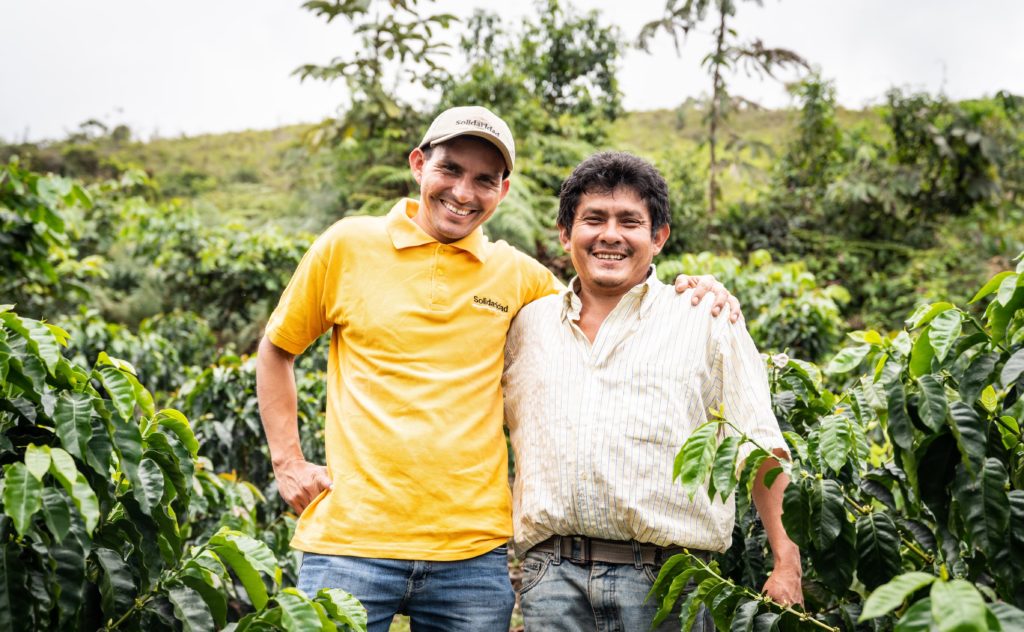
Highlights
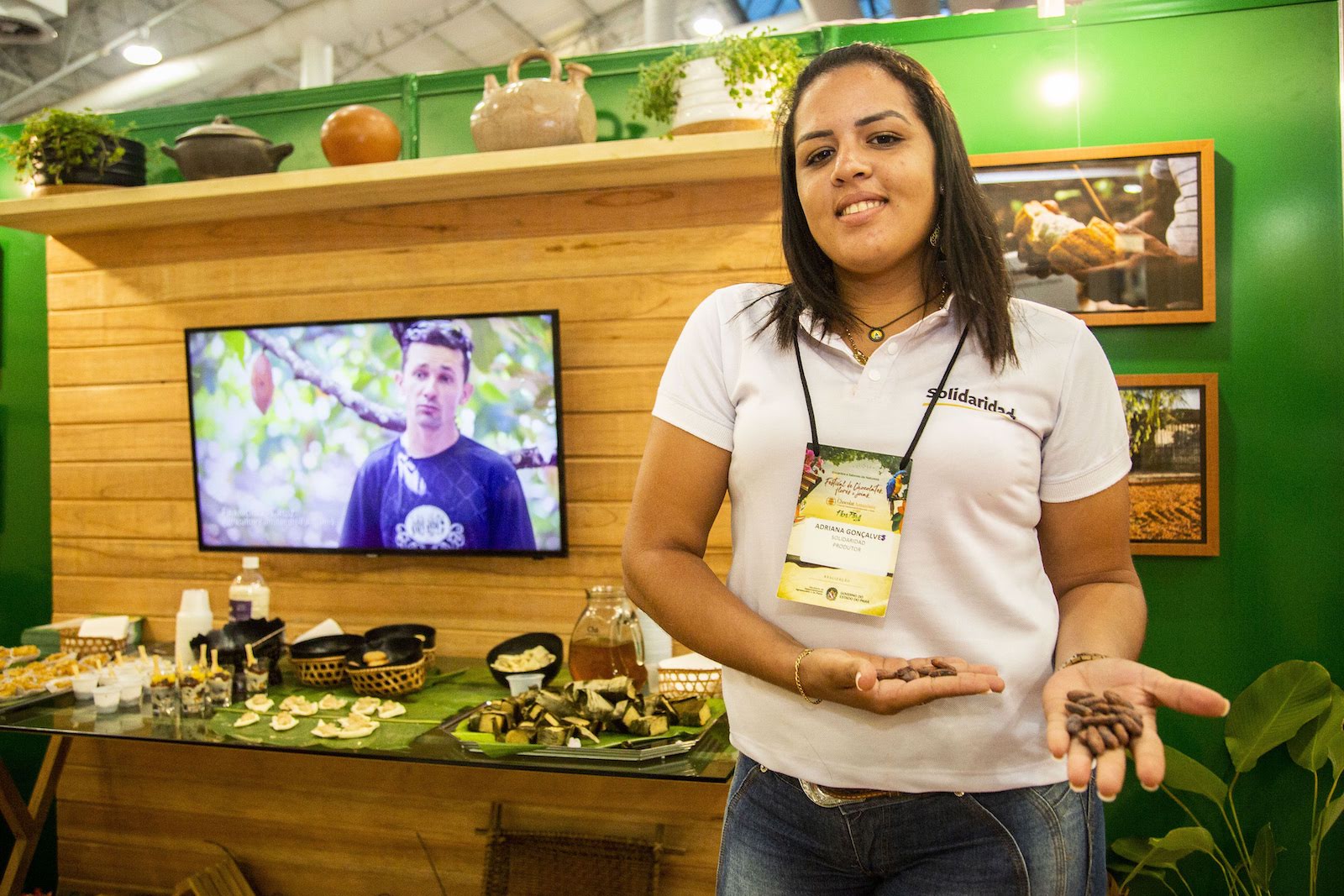
Cocoa productivity
Families receiving technical assistance (TA) to adopt low-carbon agriculture improved their cocoa productivity by 35 percent and their gross income by 51 percent. The model has proved that for each Real invested in technical assistance, producers receive 4 Reals in income.
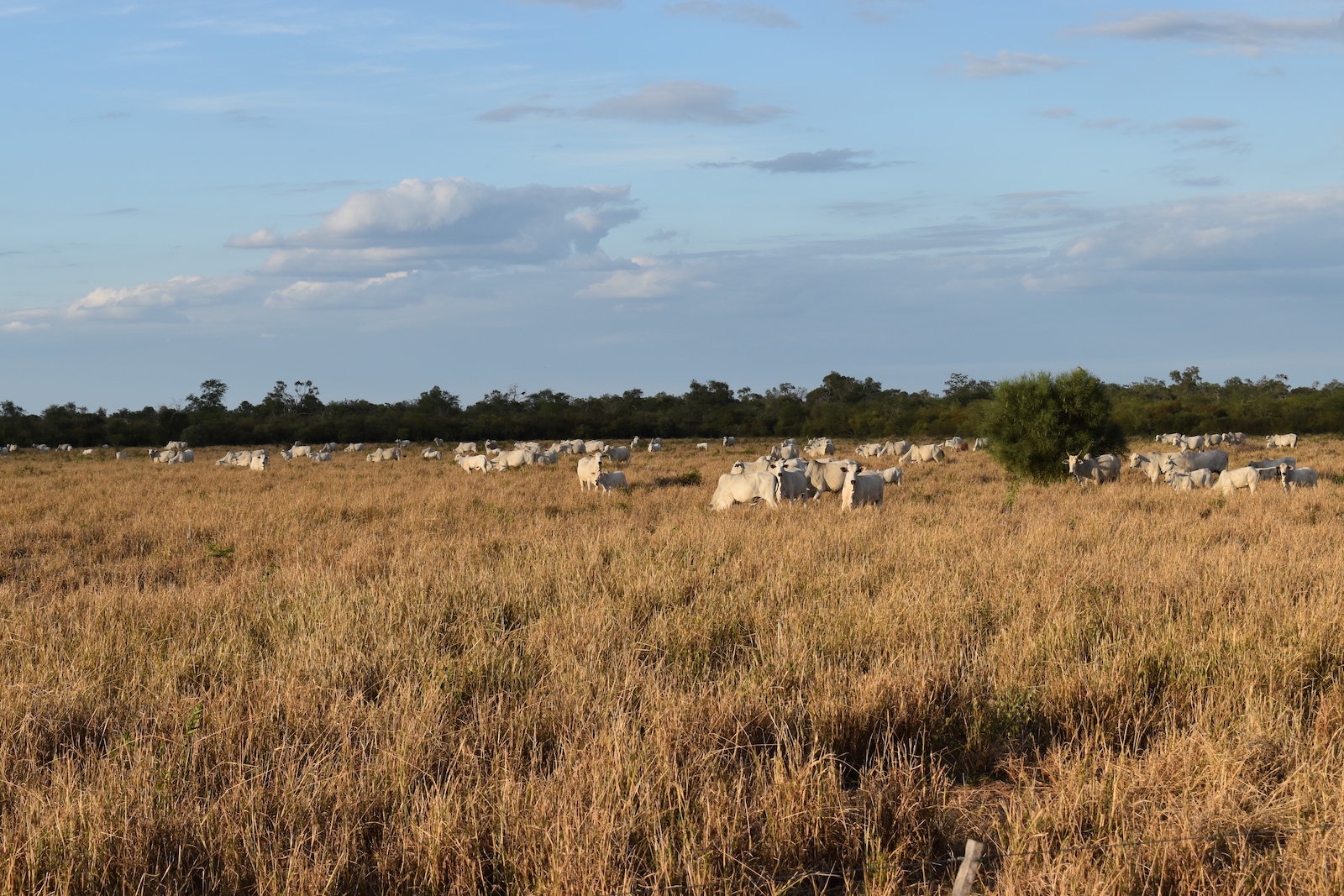
Livestock in Chaco
Beef producers who adopted climate-smart practices are demonstrating that no further land conversion is needed in Chaco to increase production. Despite adverse climate conditions, farmers who have maintained 49 percent of their native forest, increased their productivity by 31 percent against the regional baseline. Carbon emissions decreased by 18 percent per hectare and 14 percent per kilogram of beef produced.

Bolivia land
As a result of improving its processes and mechanisms, the Forest and Land Authority in Bolivia (ABT) reallocated half of its desk staff to the field to reinforce control and monitor fires and deforestation. Faster approvals will also increase law compliance amongst producers.
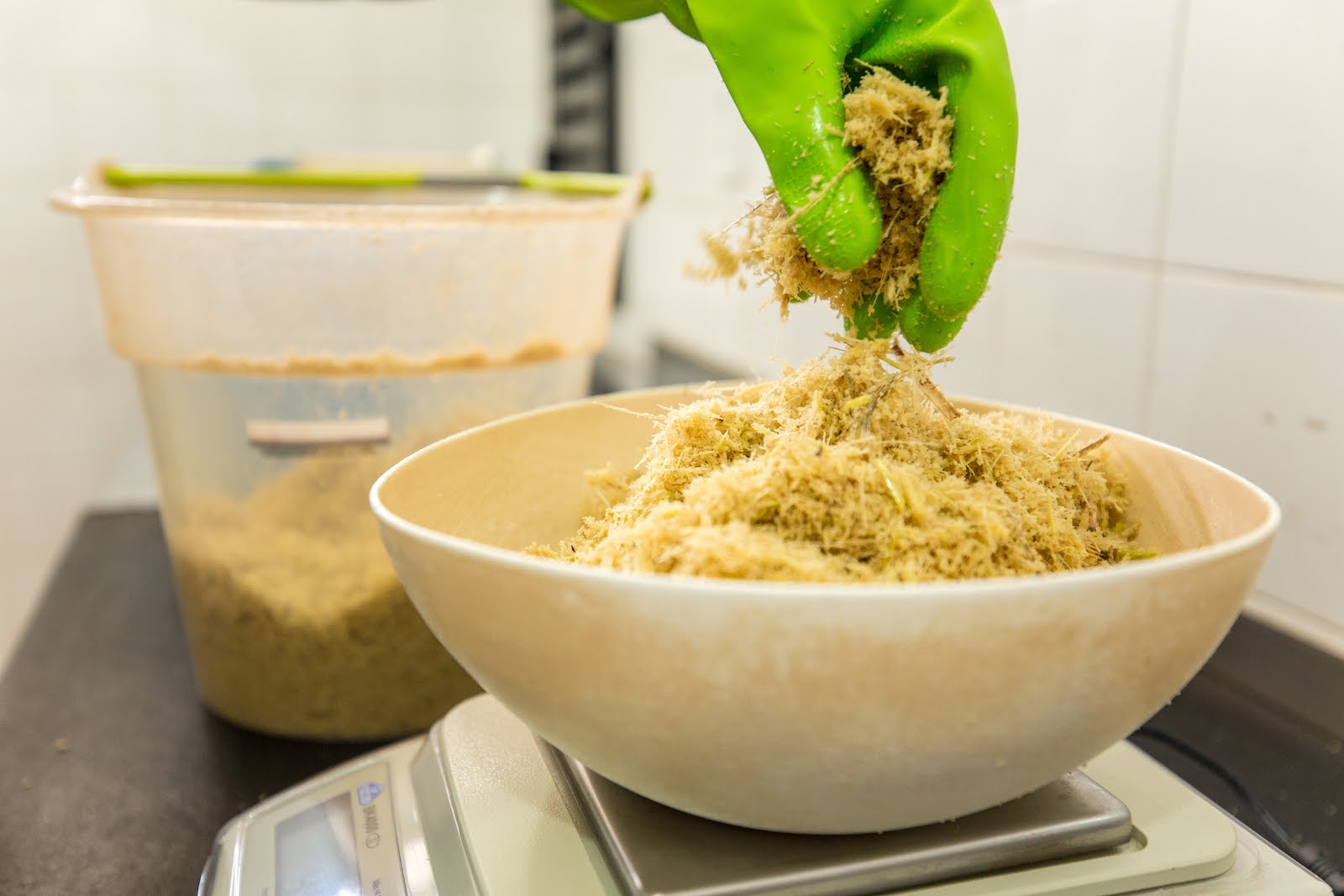
RWE Sugar
RWE, one of the largest players in renewable energies, and Raízen, one of the largest sugarcane processors in the world, partnered with Solidaridad to identify the risks and opportunities of using sugarcane bagasse and straw for power generation. This initiative has set the bases for a circular value chain that optimizes resources and brings value back to the producers.
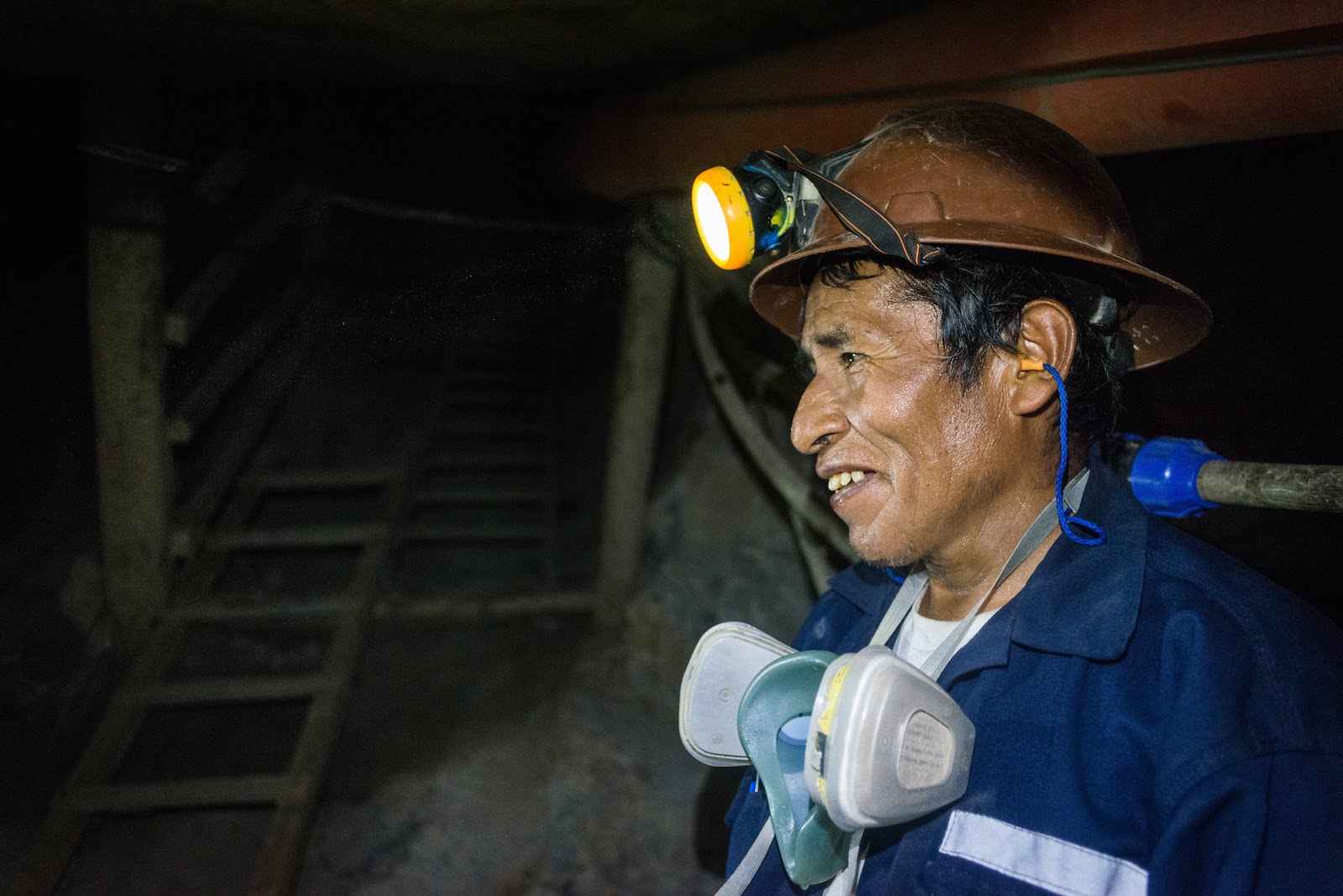
Gold in Peru
Solidaridad continues consolidating its models of strategic integration between mining companies and artisanal mining organisations. In 2020, 90 miners operating on the grounds of a medium-scale company in Peru are working on safer conditions and receiving economic benefits by reducing their material and input costs by 25 percent and their transportation costs by 30 percent.
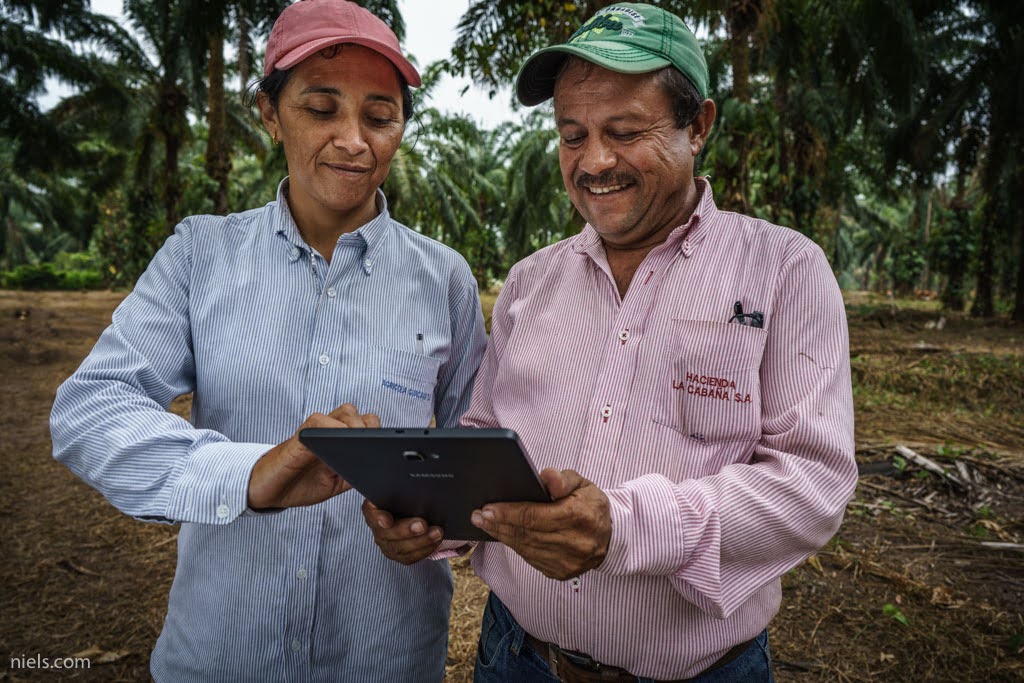
Palm in Colombia
The Colombian Research Centre, Cenipalma, adopted Extension Solution, an app developed by Solidaridad to support field staff assessing sustainability in the sector. The tool has replaced handwritten recording of progress from 776 producers in 3 months, reducing data collection time by around 30 percent.
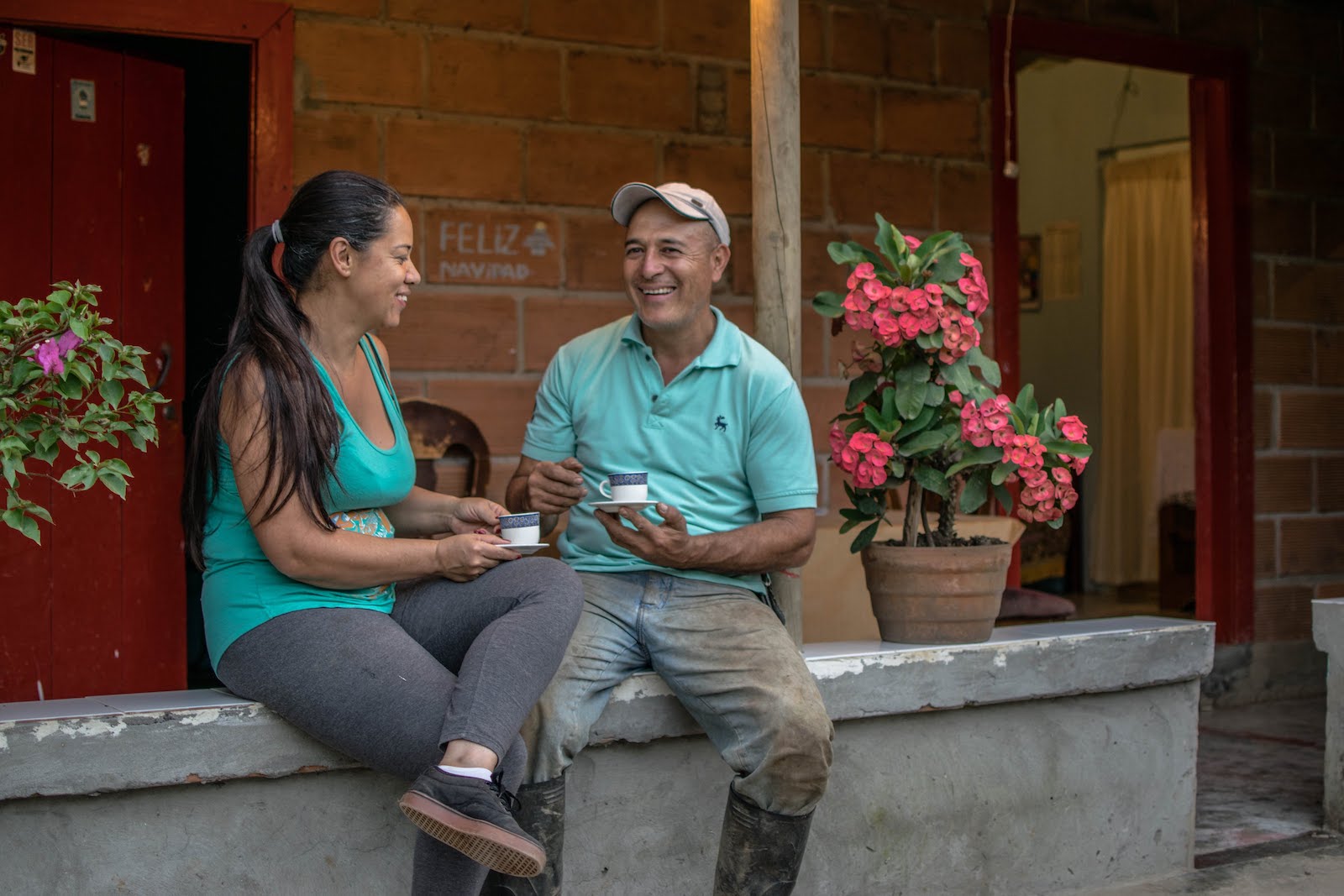
Gender and coffee
Based on the assessment of gender roles in the coffee value chain, Solidaridad developed the Famipuntos strategy that aims to improve the workload balance for all family members using a board and an app to register time devoted to each activity and reward a more equitable distribution of the tasks.
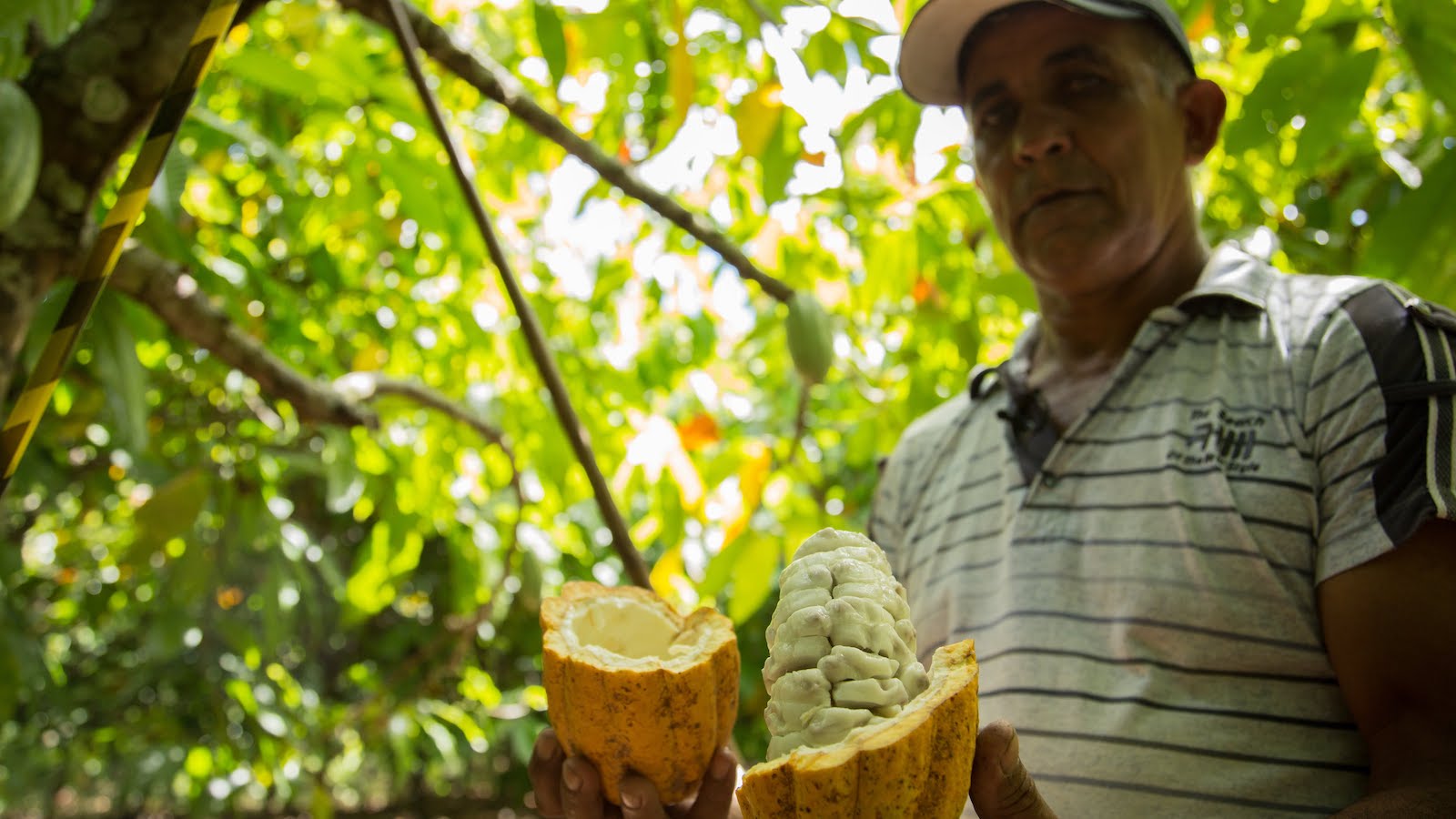
Cocoa bartering
Solidaridad and international trader OLAM designed an innovative barter program that offers preferential access to agricultural inputs to smallholder cocoa producers who demonstrate zero deforestation and introduce better labor conditions in their farms.
Results
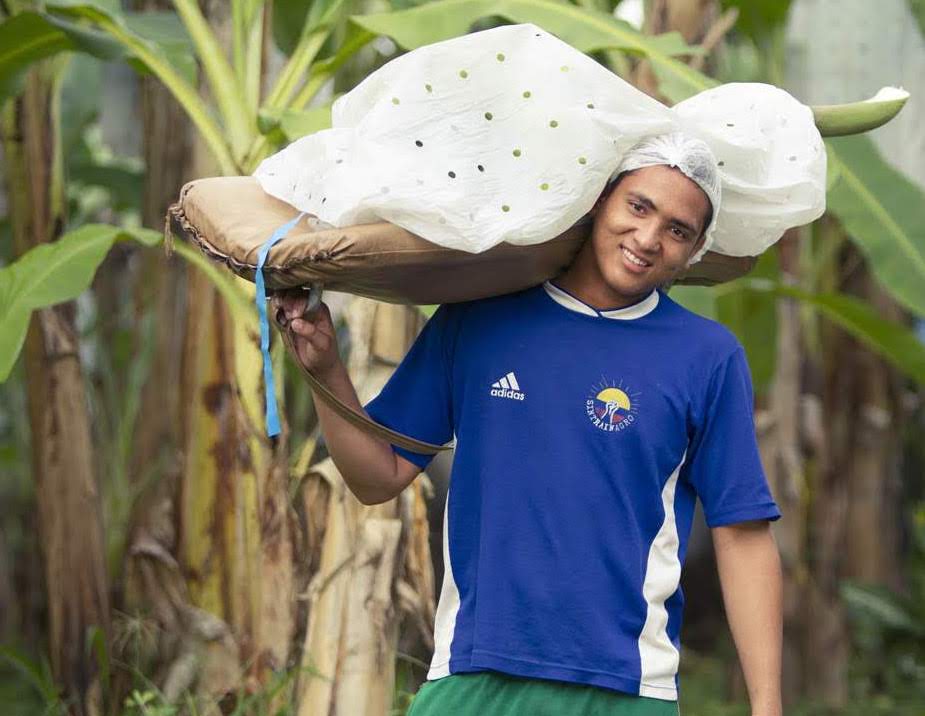
A deep dive
Innovation and adaptation
The Covid-19 pandemic created tremendous hurdles, and yet also brought opportunity for innovation and testing the gains of our programmes. We relied on our digital tools to reach stakeholders during times of severe restrictions, and witnessed the resiliency of the smallholders we work with throughout the year.
Solidaridad works with nine commodity sectors in South America to prove that producing with care for the planet and the people is both affordable and profitable for the producers. In 2020, despite the challenges brought by Covid-19, we managed to reach producers using alternative channels and digital tools. As a result of our work, 90,069 producers adopted good agricultural practices to support the conservation of soils and forests. These practices are being applied in 406,038 hectares in South America.
Our climate-smart programme continued to gain scale building-up producers’ resilience, increasing carbon sequestration, and ensuring no further land conversion is necessary. This included the afforestation of 203,417 trees in agroforestry systems with coffee in Peru and Colombia. The future of this initiative is being built with companies, such as Finlays who sourced their first containers of climate-smart coffee in 2020.
In order to sustain and scale good practices, producers need to access affordable technical assistance, timely information, and credit, among other key services. One of our key results in this regard was proving that by increasing their productivity gains, producers can include technical assistance as part of their production costs and self-finance it. Based on this, we started developing local capacity within Coopercau, a cooperative in Brazil to transfer our assistance model so that they continue providing the service in the future. Also, our suite of digital solutions is giving producers real-time information about the weather, alerts to improve pest management and clear action plans to improve their farms. They are also giving field staff insights on producers’ common gaps to tailor technical assistance to their needs.
Companies are also engaged in the development of services that improve their sustainability performance. In 2020, we signed an agreement with two of the largest meatpackers in the world, JBS and Minerva, to incorporate a digital sourcing tool to monitor the sustainability performance of livestock suppliers in two regions of Brazil. Also, we developed a digital traceability tool to support the monitoring of three beef and dairy companies that aim to have sustainable supply chains in Colombia.
Finance is another necessary component for transformation. We started a scheme in which coffee producers who protected the forest on their farms received a payment for their environmental service using BanCO2, a platform that connects governments and companies with rural communities.
Solidaridad works with public and private partners to shape enabling policy environments for sector transformation towards sustainability. For instance, the Sustainable Trade Platform in Colombia which fosters sector collaboration achieved a new milestone: 70 percent of the coffee and 27 percent of the palm oil national volumes are now produced sustainably.
Our efforts in Bolivia, Argentina and Paraguay are focused on facilitating land use planning and compliance to Forestry laws in areas of soy expansion. In 2020 we reached a common environmental regulatory
framework proposal adapted to agricultural activities in Bolivia. We also enhanced the development of digital tools that simplify land-use procedures for producers and optimize land use monitoring. In parallel, the Banco Nacional de Fomento in Paraguay will assess projects from all sectors using a risk analysis system proposed by Solidaridad to reduce and mitigate social and environmental risks attached to their loan policies.
In Brazil, Colombia and Peru, our initiatives aim at reaching and implementing zero deforestation policies. In Peru, together with Tropical Forest Alliance (TFA), we are supporting a public-private Coalition that realized the first zero-deforestation agreement signed by private actors from the cocoa value chain, which is currently being revised by public authorities. In Brazil, as members of the National Coalition for Climate, Forests and Agriculture, we supported the development of a national policy for payment of environmental services, emergency measures to reduce deforestation, and strategies to improve traceability and accelerate the transition to low carbon agriculture.
Sustainable landscape planning involves considering the various actors present and the specific characteristics of territory in a holistic way. In South America, we are using this approach in three areas. The first is the Paraguayan Chaco, where we established a multi-stakeholder platform to develop a shared vision and solutions for adaptation and mitigation to climate change effects. After four years, indigenous communities can rely on a viable sesame production scheme that provides them with a regular income and improved their water and food supply to face droughts.
The second landscape we worked in is the Transamazônica region in Brazil, where after 5 years we polished a production model that allows smallholder families to prosper in compliance with the Brazilian Forestry Code. Based on the evidence from this case, we are proposing alternatives to address common bottlenecks to transition to zero deforestation agriculture in the Amazon.
The third landscape we focused on 2020 was the Brazillian Cerrado. As a first step, we assessed farmer’s needs in four specific spots of the MATOPIBA region (MAranhão, TOcantins, PIauí e BAhia) to get a deeper understanding of the incentives required to support the development of a long-term zero-deforestation sourcing strategy led by the largest industry players.
Innovation Areas
Results
Amplifying impact
Throughout 2020, we worked with stakeholders across value chains to maximize impact by emphasizing inclusivity and full participation, using mixed methods for training and engagement, and bringing together actors from different spheres and sectors.
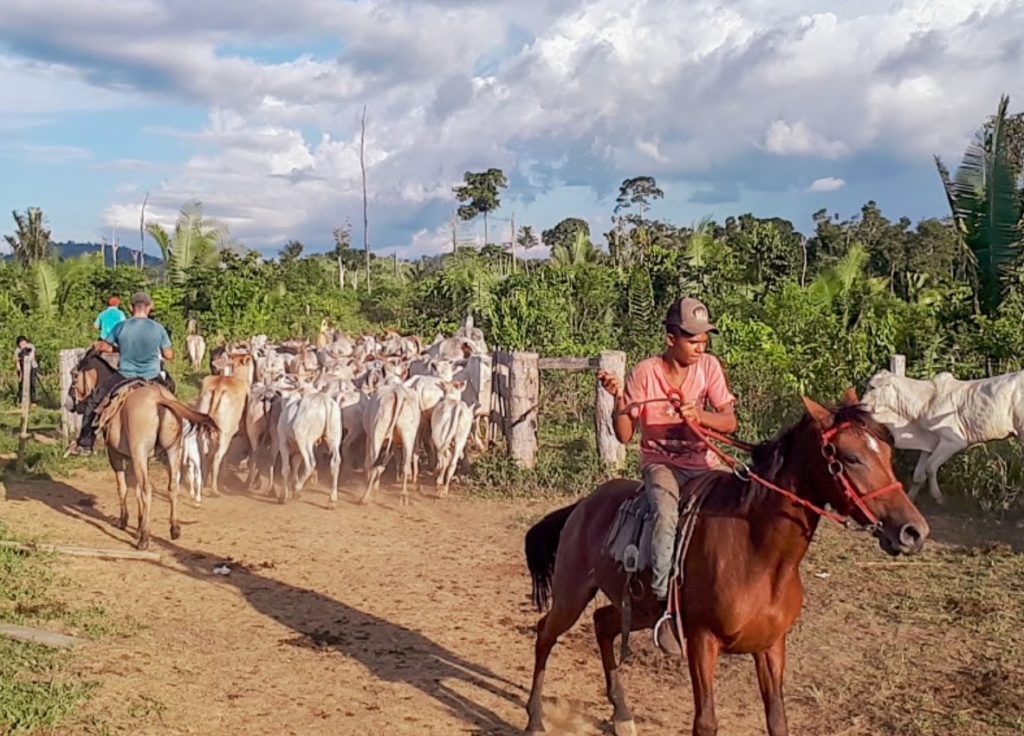
In rural communities, women can play a decisive role in improving their families’ livelihoods. To increase their participation and formal leadership in production systems (both in agriculture and mining), we developed a gender-inclusive approach to our project management and our technical assistance. Based on this, and through community-led empowerment methodologies (GALS), we conducted gender assessments to understand the needs and actions required in our projects of coffee in Peru, cocoa in Colombia, and the Chaco landscape in Paraguay. Moreover, we supported Pallaqueras -female miners who work on the slopes and outskirts of mines to collect minerals left over- in Peru, and the network of women miners in Bolivia. We provided information and resources to handle the COVID-19 crisis and helped them develop skills in leadership and negotiation. The resources to support pallaqueras came from a worldwide crowdfunding campaign led by Solidaridad.
In impact investment, we have been studying investment ecosystems, building business cases and generating deals to provide investment for producers. In Argentina, we analyzed the state of the financial sector linked to tea, soy, and livestock. In terms of business cases, we completed a financial analysis of sustainable intensification for smallholder livestock production in Brazil and medium-large producers in Paraguay. These cases will be presented to impact investors to fund the expansion of the models. Regarding the deals closed in 2020, in Colombia AgroPréstamo was piloted with 315 palm oil farmers, who accessed credits for 1 million EUR to improve their practices. In Paraguay, the financial institution “Crédito Agrícola de Habilitación,” provided dairy smallholders in Chaco access to 200,000 EUR in loans based on their improved production capacity. Similarly, in Peru, we set in place a mechanism that enables profit from coffee waste to be disbursed into a revolving fund of up to EUR 2,000 of credit a year for producers to adopt climate-smart technologies. Finally, we secured funding to provide loans for artisanal small-scale miners, who are traditionally excluded from formal credit.
South America harbours the highest percentage of forest cover on the planet and is key for climate action. In 2020, we refined our methodologies to monitor deforestation and our carbon balance calculations. These new methodologies were deployed in 4 countries and 3 commodities. Carbon calculations allow us to understand how to mitigate GHG emissions and avoid deforestation from agriculture. Coupled with evidence on increased productivity and income, it helps to ground our business case for climate-smart agriculture. We are also joining forces with companies, so commodity buyers recognize and reward climate-smart production. Along these lines, in 2020 we established an agreement with Rabobank to offset carbon through shade trees in coffee plantations.
Digital solutions have played a key role in the dissemination and monitoring of our sustainable practices. In 2020, we supported more than 13,000 farmers through digitally-enabled interventions that use our mobile applications (Farming Solution, Extension Solution and Agrolearning). Encouraged by the success of these applications, we continue to strengthen and expand our digital portfolio. In 2020, we partnered with 4ToldFinTech to launch AgroPrestamo, a digital solution that facilitates farmers´ access to finance. The app allows stakeholders to know the payment capacity of farmers based on their production records, mitigating risks, while enabling farmers to manage their credit lines.
Generating insights from field data is changing the way Solidaridad and its partners work with producers on the ground. For example, the data gathered through Extension Solution provides farmer organizations with insights on the farmers’ needs and priorities, enabling them to re-shape their services much faster and make their service provision model more cost-effective. The use of Business Intelligence has also transformed how a large company, such as Raízen, monitors its supply chain, reports on its sustainability targets, and makes investment decisions through the Elo programme. This initiative is increasingly recognized as a benchmark for agribusiness companies, and was distinguished by the UN Economic Commission for Latin America and the Caribbean as a “Big push for Sustainability.”
Most significant changes
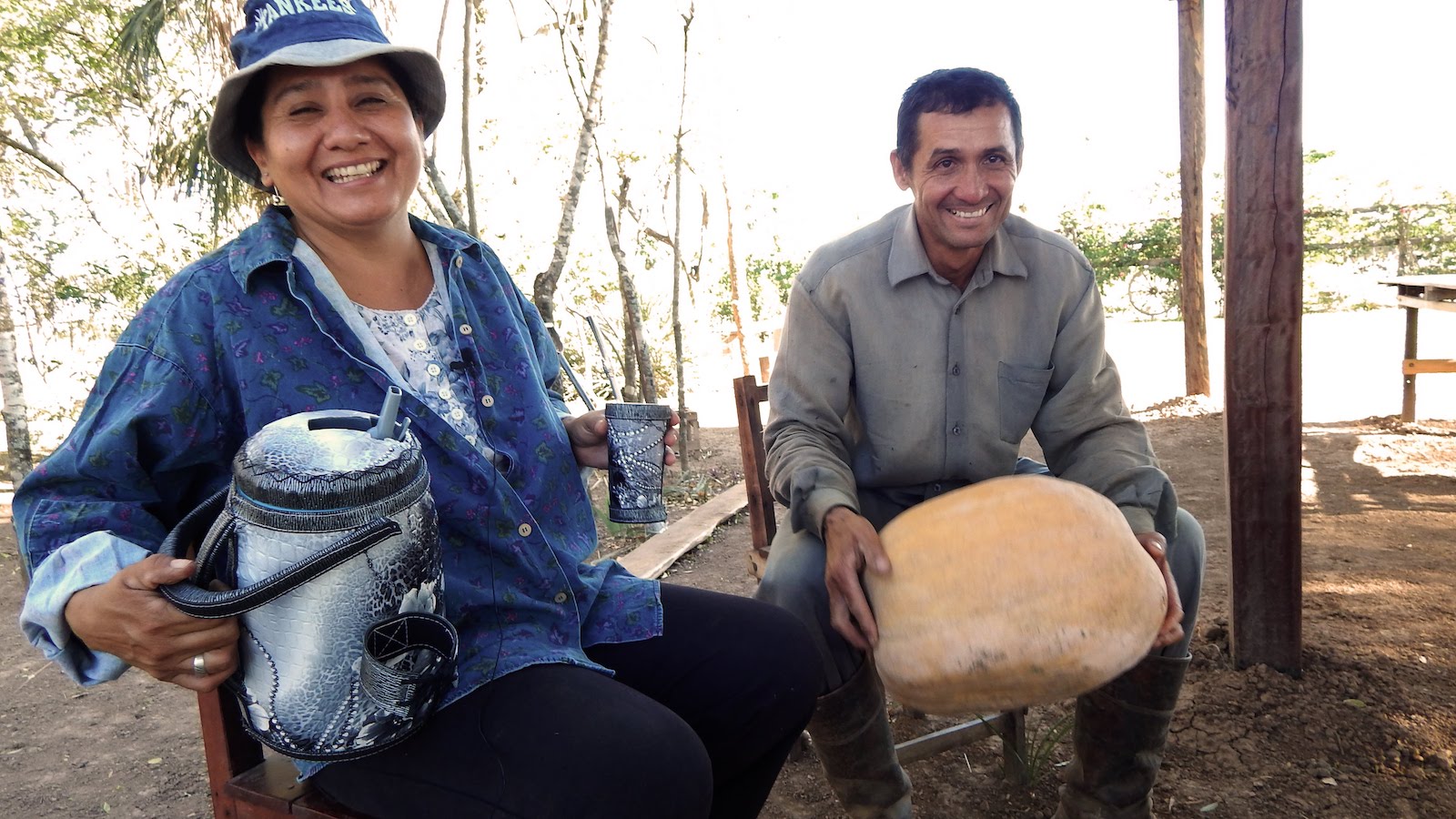
The story of Casilda: Community empowerment and resilience in Chaco
Seven years ago, Casilda and her husband came to Campo Aceval, hoping to start their own business after a lifetime of working for others. They seized their opportunity by taking over a family farm in an area that provides milk to one of the largest dairy companies in Paraguay, Chortizer, or “Chorti” for the locals. To help realise their livelihood ambitions, Casilda and her husband joined the Campo Aceval cooperative, where Casilda became one of the few women directors.
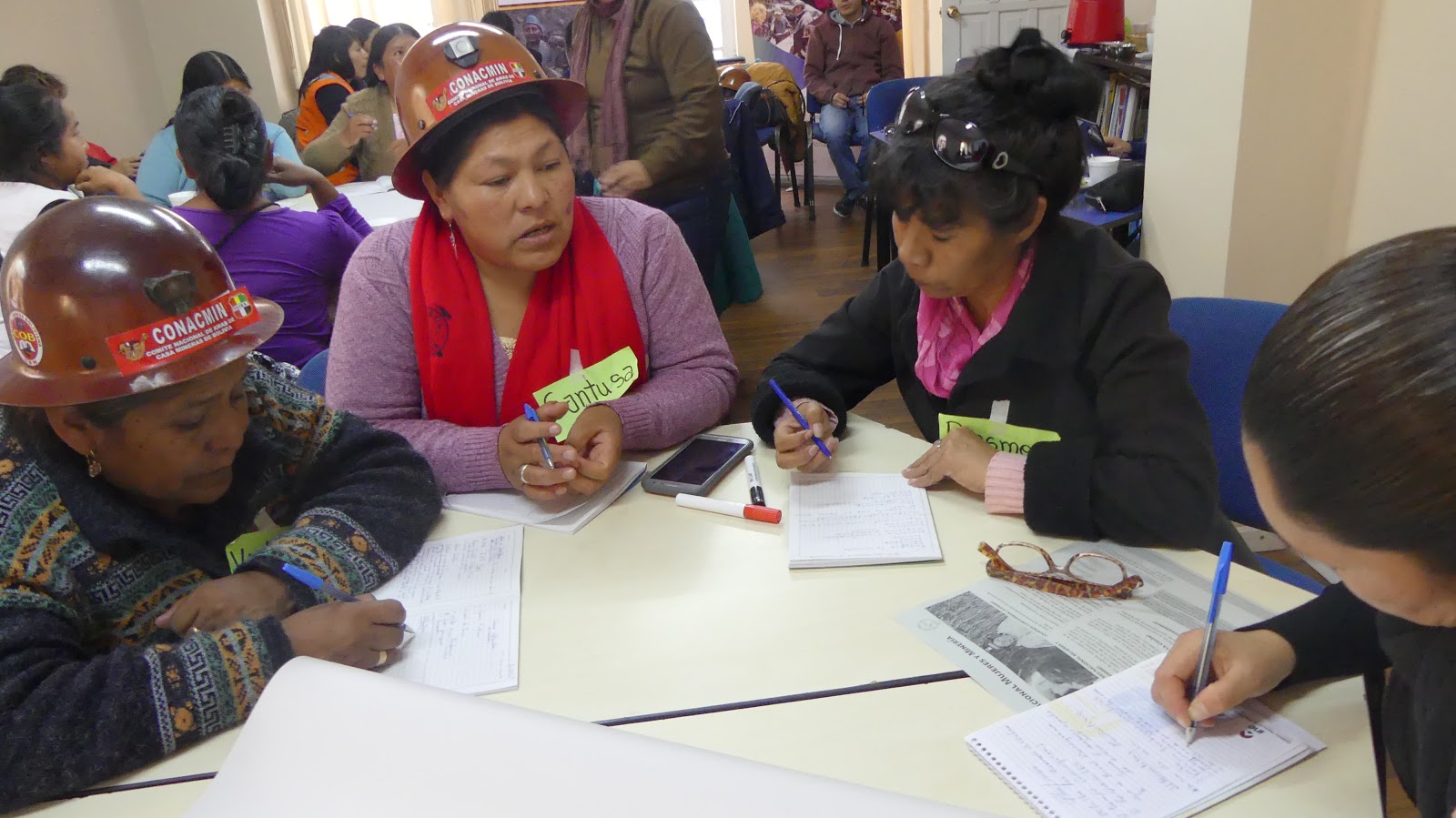
“My name is Sinforosa Rodriguez: I am a woman and a miner”
Sinforosa, better known as Sinfo, is the oldest of nine siblings and a native of Porco, a municipality in Potosí, Bolivia. When her father fell ill with a lung disease called silicosis, she was asked to replace him as a member of the mining organization. There are different barriers for women to participate in the exploitation of the largest mineral reserves: from the preconception that women are not physically fit for mining to the superstition that letting women inside the mine brings bad luck. The Encarnación mine was no exception to this rule, but Sinforosa paved the way for other women relying on her father’s support and her own determination.
Organization & governance
Developments
A human-centered approach
The organization continued to be driven by human-centered approaches across human resource and data collection methods, to partnerships and communications.
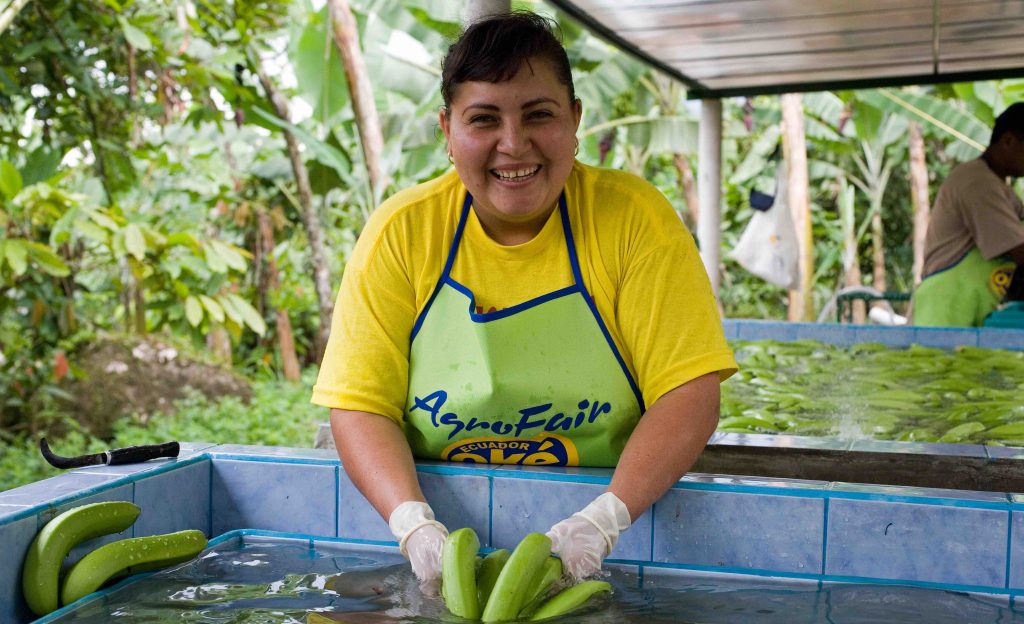
In 2020, we adapted our operations to mainly work remotely due to mobility restrictions related to the Covid-19 pandemic. South America, as a region, has been hit strongly by the pandemic.
Even under these conditions, our staff grew to 137 employees (16 percent increment) due to the implementation of new projects. The countries with the highest staff growth were Colombia and Peru. Also, we have continued to maintain a good gender balance of staff, currently 60 percent men and 40 percent women, but new employees were mainly men, which tipped the equal balance from previous years.
In terms of HR development plan, 2 countries finalised their staff salary benchmarks, which means that all our offices in the region have completed their salary reviews and are in the process of completing salary scales.
We continued to work on the full implementation of appraisal cycles. Our aspiration is that 100 percent of staff have updated job descriptions, specific personal objectives and are fully evaluated. At the moment, 61 percent of SAM staff have updated job descriptions and 58 percent have been formally evaluated and have objectives for 2020. Finally, we are in the process of communicating and rolling out our new code of conduct and integrity framework. REC SAM will contract a part-time HR specialist in 2021. The Terms of Reference of this position have been developed.
In 2020, we developed new partnerships with private actors to continue some key initiatives we had built. An agreement was signed with the Land Innovation Fund to measure carbon balance scenarios for soy in Western Bahia (MATOPIBA). Cargill also showed interest in expanding their partnership in Paraguay by developing an intervention in Chaco based on regenerative agriculture, using digital technology and GHG calculations, and signed an agreement to support 200 soybean farmers in Bolivia.
The partnership with Nestlé in Colombia offers us new opportunities to scale our interventions. In coffee, we reinforced our ongoing gender-focused interventions and will initiate an entrepreneurship school for young people. In dairy, we will train 100 of Nestlé’s suppliers in Caquetá to adopt good practices with the support of digital and educational solutions.
We established new partnerships with private companies interested in defining sustainability strategies in Brazil. One is the Syngenta Nucoffee program where we will monitor the progress of farmers towards RainForest Alliance standards. Another is Mondelez for whom we will perform a National Needs Assessment for cocoa production regions. A third is Martin Bauer Group with whom we will do a farmer needs assessment in the yerba mate sector.
Also, we have obtained grants from financial institutions like the National Development Bank of Paraguay and the International Fund for Agriculture and Development of the United Nations to the scale of our programmes. We also closed new partnerships with government institutions from the United States, Germany and the Netherlands.
In 2020 we built our Multi-Annual Strategic Plan for South America for 2021-2025. We built our strategy with a bottom-up approach, involving 30 leaders of Solidaridad in the region. The result was a regional strategy aligned with the Network proposal and a reduced set of indicators to measure progress. Aiming to capitalize on our experiences, several project evaluations and studies were conducted. In Argentina, an external evaluator assessed the impacts of our advocacy project on the zero-deforestation agenda for soy. In Brazil, we carried out an external assessment of the cost-effectiveness of technical assistance focused on sugarcane and cocoa. In Colombia, we conducted a collective impact analysis of the Sustainable Trade Platform (STP) and generated a blueprint for multi-stakeholder platform initiatives based on the seven-year experience. In Paraguay, we conducted a study to understand the type of beneficiaries and areas where the climate-smart beef project could be scaled. In Peru, we evaluated the effectiveness of different tools for remote technical assistance, aiming to understand better what was working better for virtual communication with producers.
Following the Covid-19 outbreak, most of the field visits had to be cancelled. As a result, the communication team assisted in the transition to virtuality. Each office assessed the connectivity and the means available among the groups of producers, as well as their digital literacy. Staff was trained on the use of Zoom to host online workshops, and Solidaridad Youtube and Facebook were adopted to broadcast webinars to larger audiences. Training materials were digitized, podcasts and videos were made and distributed through mobile apps, online learning platforms (Agrolearning), the corporate web, and social media. Some took the utmost advantage of WhatsApp to hold live online meetings, others adapted content to SMS or hired experts to broadcast on local radio stations in areas with less connectivity, and a community was even created on Facebook for coffee growers.
Also, much attention was paid to create awareness of the importance of the farmers who kept on supplying food and raw materials during the lockdown period. Between March and April, a campaign with testimonials from producers about their situation reached 1.4 million people with an engagement rate of 24 percent. Ten news and publications were submitted on the impact of Covid in specific sectors and safety protocols, which had 4,300 visits of 5 minutes on average. Solidaridad reached over 10.4 thousand impressions on the first page results of searches related to Covid protocols with an average click-through rate of 3.5 percent.
No integrity issues were reported by our five country offices in the region. Solidaridad in South America has supported the Network with the development of its newly reviewed integrity policy, currently under deployment.
Finance
Due to Covid-19, during 2020 we had a series of restrictions for the implementation of various activities in the field and making trips. Understanding this context, our donors allowed budget changes in order not to affect the main objectives of the projects. Despite delays in the planned activities, we complied with the execution of our modified work plans, especially in the case of projects financed by the Dutch Government that were already in their final stage of implementation.
Fortunately, Covid-19 did not affect calls for the implementation of projects in South America. We submitted more than 25 proposals as the lead organization, and our offices in Colombia, Peru, and Argentina increased their income by more than 700K EUR for 2021. These funds were provided by Cargill, Tropical Forest Alliance (TFA), Chemonics, Swiss Development Cooperation (SECO), The Nature Conservancy, Alicorp, and others. We have also submitted important proposals to Norway’s International Climate and Forest Initiative (NICFI) and USAID’s Sustainable Landscapes BAA involving almost all the countries in our region. Important proposals such as those submitted to the NAMA FACILITY and NICFI III did not pass the last round. Therefore, we are developing different strategies to minimize their impact.
